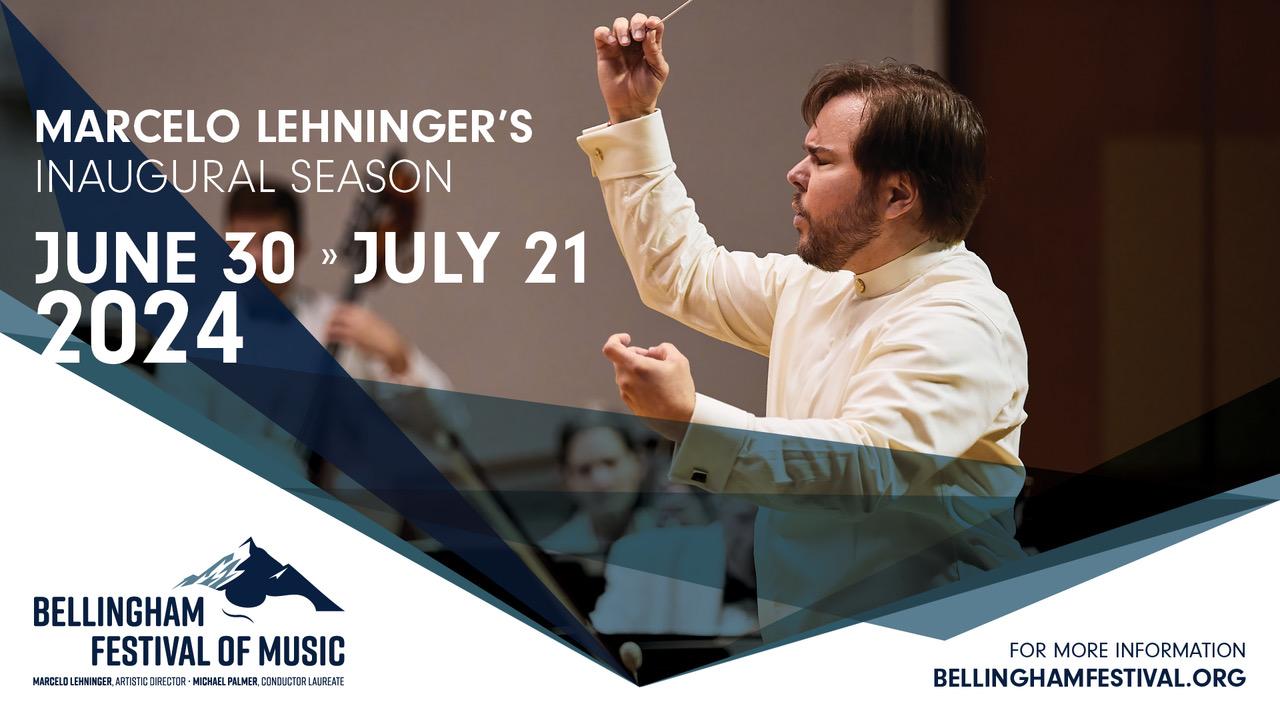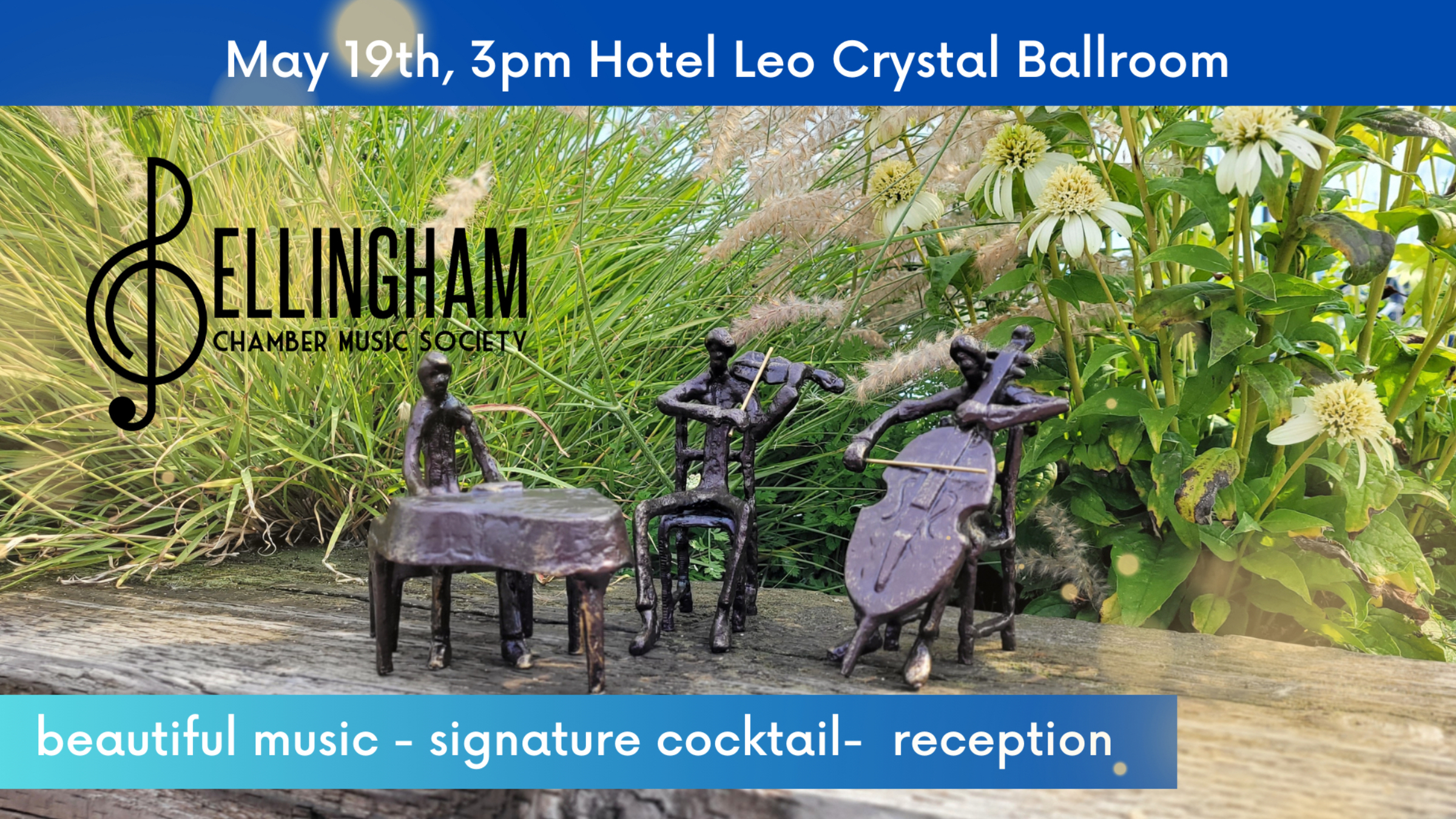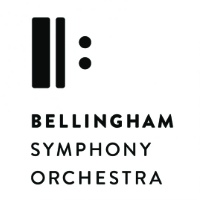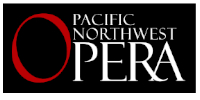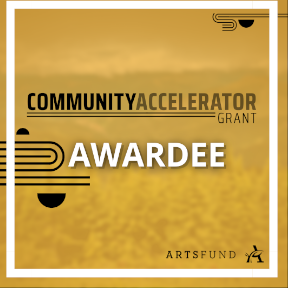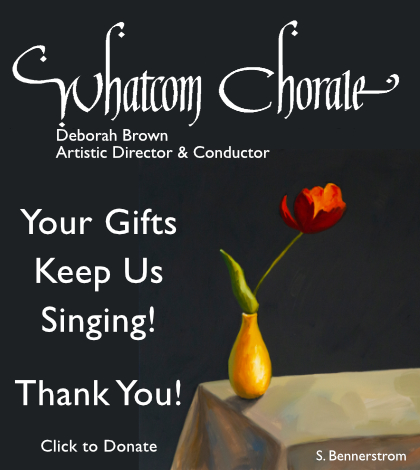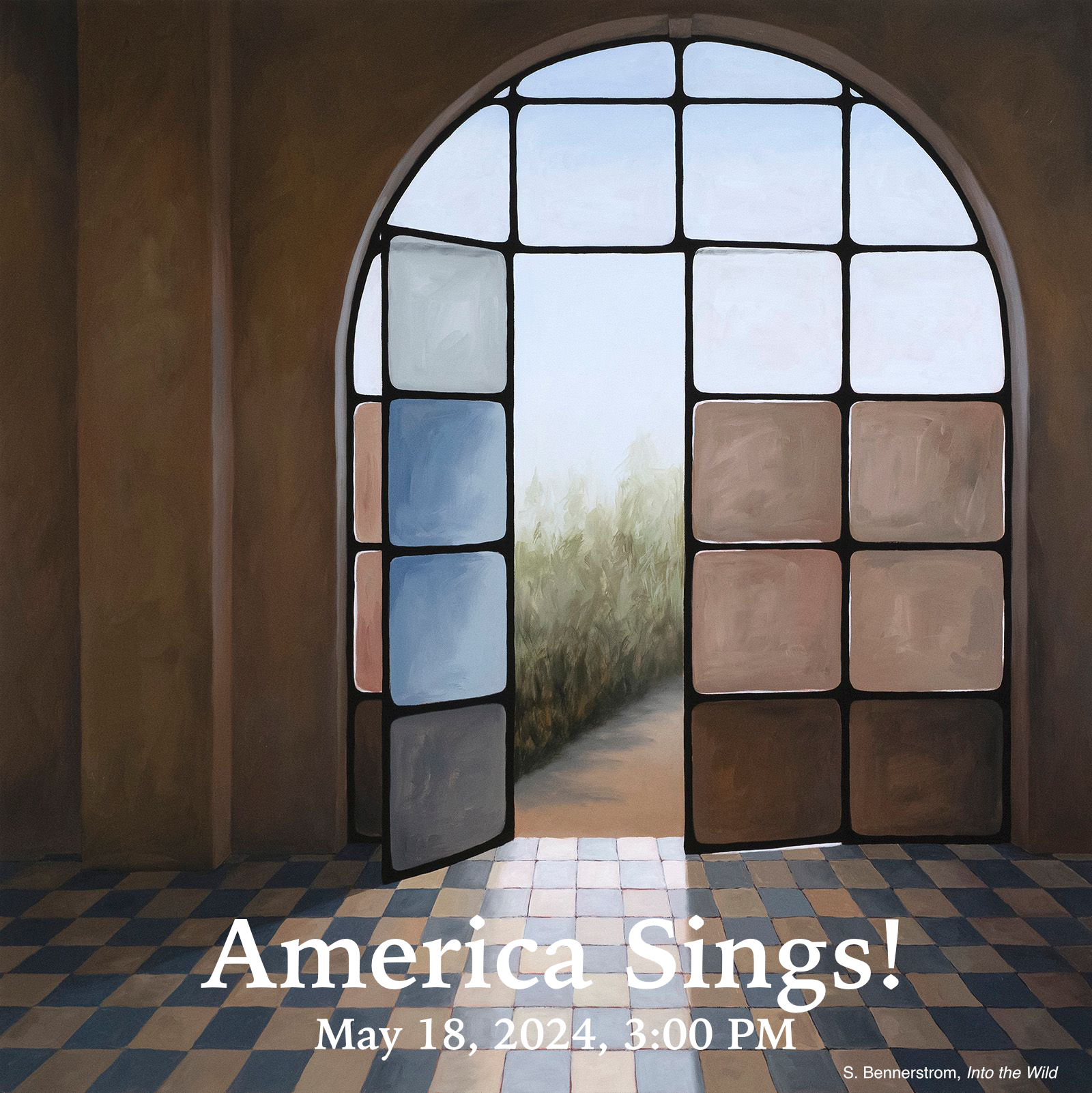
We dedicate today's concert to all those around the world who are suffering from the violence of war and other humanitarian crises. We hold in our hearts the innocent lives that have been lost and the survivors whose lives have been touched by unspeakable horrors. We honor those whose fierce determination to promote peace and security in our world has led to great personal suffering and loss. We offer this performance with love in our hearts and thank you for sharing in this emotional journey with us.
Arr. Alice Parker (1925–2023):
“Sing, Sing”
“The Girl I Left Behind Me”
“Has Sorrow Thy Young Days Shaded”
“The Minstrel Boy”
“I Will Arise”
“Bound for the Promised Land,” arr. Lee Kjelson (1926–2009)
Soloist: Sarah Negishi, soprano
“Colorado Trail,” arr. Norman Luboff (1917–1987)
Soloist: Jan Peters, harmonica
“Shenandoah,” arr. James Erb (1926–2014)
“Johnny Has Gone for a Soldier,” arr. James E. Dooley (1930–2021)
“This Is My Song” from Finlandia by Jean Sibelius (1865–1957)
INTERMISSION
Selections from Frostiana by Randall Thompson (1899–1984) (text by Robert Frost, 1874–1963):
“The Road Not Taken”
“The Pasture”
“Stopping by Woods on a Snowy Evening”
“Choose Something Like a Star”
“Ev’ry Time I Feel the Spirit,” arr. William L. Dawson (1899–1990)
Soloist: Norman Hale, bass
“Give Me Jesus,” arr. L. L. Fleming (1936–2003)
“Ride the Chariot,” arr. William H. Smith (1908–1944)
Soloist: Sherrie Kahn, soprano
“Carry the Torch” by Scott Henderson (b. 1956) (text by Linda Marcus, b. 1937)
Whatcom Chorale welcomes you to an afternoon celebrating song drawn from the collective American voice. We bring you a program of inspired melodies—some rousing, some poignant, all conveying a deeply held belief in the value of individual expression. Although the familiarity of these tunes may connect us in the enjoyment of a shared tradition, many did not originate on this continent. Our musical heritage, like much of our population, has grown from unique contributions that reflect the world around us. We hope today’s small sampling of the music that works to unite us leaves you with a renewed appreciation for why “America Sings!”
Celebrated composer, conductor, and teacher Alice Parker (1925–2023) created hundreds of choral compositions and arrangements throughout her eighty-year career. In an era when modernism propelled musicians toward atonal composition, Parker championed the vital element of melody. She believed adamantly that “melody is the foundation of human music making, and that song issuing from one human throat is the essential first step to a musical life.” Song, in its myriad forms, is accessible to everyone; therefore the act of singing gathers people into community. Choral singing requires participants to both listen and vocalize in a way that talking does not. It frees the mind from considering one’s next argument and allows one to concentrate on the arc of a musical line and its integration within the whole composition of sound and intention. In Parker’s lifelong mission to get people singing together, she resurrected many traditional melodies and folk songs from diverse cultures and times long past. Her arrangements demonstrate a special sensitivity to the interaction between text, tune, and rhythm, giving life to musical conversations that resonate deeply within listeners. For Parker there was nothing theoretical or abstract about music: “I don’t like to think of music as art. I think of it as humanity. It’s about human beings.”
The melodies of the first four arrangements by Alice Parker selected for today’s concert recall traditional Irish tunes that may sound quite familiar. Although precise dating of these folk melodies is uncertain, they originated in the late seventeenth and early eighteenth centuries during the Irish Catholic rebellions against brutal English suppression. The pieces share lilting cadences that drive the narratives forward, even though the tales often depict hardship and struggle. Repetition of familiar melodies brings comfort in the face of oppression. Within these communal tunes, the optimism of resilience and continuity persists despite adversity and injustice. Beginning in 1649, with the exile of Irish prisoners of war to the West Indies, and peaking with the mid-nineteenth-century potato famine, Irish immigrants brought their stirring melodies of fortitude to the Americas, where the voice of resistance emerged as a shared tradition.
In songs that become enduring parts of our musical heritage, melody often expresses the emotional dissonance between dreams and reality. As in the pieces “I Will Arise,” “Bound for the Promised Land,” and “Colorado Trail,” the very act of song is a choice to retain hope. In that same moment, singing can generate catharsis by voicing the gravity of loss. Melody moves toward promise, and promise brings images of endless variation, from the “ten thousand charms” and “eternal rest” of heavenly reward to the subtle waking beauty of a prairie sunrise.
A familiar melody creates the reassuring illusion that one knows what should come, even though the future is always uncertain. Much loved and hauntingly beautiful, “Shenandoah” expresses the tension of striking out toward unknown potential—a new territory, a new life—while leaving one’s homeland behind. Although it has become an American classic, the song originated in the late eighteenth century with French Canadian fur traders who traveled the Missouri River. The earliest version of the lyrics describes a trader who falls in love with the daughter of an Algonquin chief, but is forbidden to marry her. Through the years, this soulful love song to a native princess has evolved to bespeak the inborn yearning for a generous landscape of familiarity and home. Its timeless appeal arises from admitting the poignant conflict between seeking one’s future and abandoning the past.
Similarly, “Johnny Has Gone for a Soldier” describes the acute pain of sacrifices made to serve a higher ideal. The heart-wrenching melody and the lament of sending a loved one to war derive from an Irish folk song that became popular during the 1688 rebellion. Given their experience under harsh British rule, many Irish, who immigrated to the American colonies throughout the 1700s, proved themselves ardent patriots during the Revolutionary War. The song’s sentiment translated readily to the American fight for freedom and independence. Moreover, the angst-ridden details of personal suffering highlight an individual’s perspective and counterbalance the romanticized image of valorous soldiers charging on the battlefield.
Jean Sibelius (1865–1957) composed Finlandia as a demonstration of patriotism in 1899 after Tsar Nicholas II asserted that Russia had a right to rule Finland. Christening the symphonic tone poem after his homeland sounded a subtle protest against the Russification of Finland, and defiant loyalists soon embraced the penultimate movement, “Finlandia Awakes,” as a national symbol. Lyrics in both Finnish and English were written to adapt the compelling melody into a much-loved hymn. In today’s rendition, “This Is My Song,” verses one and two were written in 1934 by schoolteacher and poet Lloyd Stone, during the brief interlude of peace between World Wars I and II. Following the horrors never seen before the technological innovations of the “war to end all wars,” Stone’s poem offers a fervent hope for peace between nations. The guileless words emphasize that love of country is shared by all peoples regardless of birthplace. Furthermore, if one values and respects the individual right to cherish a national identity, one must accord that right to those who identify with other nationalities. In this way the love of country becomes a common and unifying aspect of humanity.
Known for his works of introspective melody and harmonic clarity, Randall Thompson (1899–1984) distinguished himself as possibly the most frequently performed choral composer of the twentieth century. Thompson invested particular care to honor the natural rhythms of language, thereby intensifying and expanding the meanings of the poetic voice. With regard to the essential role of text in composition, Thompson explained, “I try to let the text lead me by the hand, because I want there to be a wedding between the words and the music.”
Given his dedication to textual integrity, Thompson proved an inspired choice for the setting of Robert Frost’s (1874–1963) poetry. Commissioned in 1958, Frostiana commemorates the two-hundredth anniversary of Amherst, Massachusetts. Although Frost chose to illuminate the commonplace, romanticizing rural images often considered quaint and colloquial, his uncomplicated offerings belie multiple layers of meaning. Likewise, the apparent simplicity of Frost’s language is deceptive. In the poet’s words, “Any sentence that does not give two ideas, that does not have a double meaning, fails to appeal to the imagination and is not poetry.” Frost refused almost all requests to set his poetry to music, but in Thompson’s sensitivity to text and subtext he must have realized an opportunity to enhance the impact of his words. Thompson did not disappoint, fashioning each musical phrase to mirror the arc and cadence of Frost’s familiar speech. Reports from Frostiana’s premiere describe the poet leaping to his feet, applauding, and shouting, “Sing it again!”
Beginning with “The Road Not Taken,” perhaps Frost’s signature poem, Thompson writes constant quarter notes for the piano accompaniment, mimicking the steady, plodding footfalls of a predictable course. The voices enter and continue pleasantly in unison for over a third of the selection, as if to reinforce the comfortable assurance of following a consensus. However, with the phrase “And both that morning equally lay,” the melody blossoms into rich harmonies that introduce the listener to a new potential for beauty and depth. The shift presents a subtle choice and sparks an almost subconscious response within the audience to favor the fuller, more complex sound. Consequently, Thompson’s setting gently leads one to opt with Frost for the road “less traveled by.”
Thompson opens “The Pasture” with an enticing dancelike air from the piano accompaniment. The chorus of men’s voices enters gently in a wash of harmony, both confident and assuring. The easy cadence signals that the chores at hand are neither repellent nor burdensome, and in fact offer pleasant opportunities to observe and interact with the awakening rural landscape. Husbandry holds the intangible reward of caring for the land and its bounty. Yet this is no solo effort. Thompson’s flowing melody is almost indistinguishable from the harmonies that weave tightly through the recitation of each verse. The music becomes a seductive embodiment of the invitation “You come too.” When the piano enters again, repeating its playful urge to dance, the listener instinctively understands that the idyllic tableau will not be complete without fulfillment of the closing entreaty: “You come too.”
The initial stanzas of “Stopping by Woods on a Snowy Evening” present a quiet reverie that Thompson sets with lush harmonies in a comforting range for men’s voices. The introductory accompaniment of descending staccato arpeggios beginning in the upper register suggests lightly falling snowflakes. This peaceful vignette is disrupted, however, when the piano arpeggios divert to a minor key after verse two and a dissonant quintet of notes replicates the horse’s harness bells. Responding to this ominous call, the voices resume until the final stanza, in which the words ”deep,” ”keep,” and ”sleep” are unexpectedly elongated and given two and three times the note value of previous corresponding measures. It is a simple but powerful device that accentuates the determination to continue onward. The last line, “And miles to go before I sleep,” repeats, and Thompson augments the key words even further before leaving the final vocal chord unresolved, emphasizing the traveler’s decision to resist his urge toward a rest that would likely never end.
“Choose Something Like a Star” begins with a graceful octave soprano leap to a D natural that is sustained and then repeated for twenty-five measures. The soaring note seems a fitting homage to the poem’s celestial subject, “Oh Star,” as if calling out for higher guidance. The underlying lyrics as sung by the remaining voices do extol the star’s superior position and its power to shine through darkness. However, as the poem progresses, the human entreaty for divine counsel becomes frustrated. The dissonances and unexpected chromaticism of Thompson’s chord progressions reflect this uneasiness. To the plea for enlightenment, the star answers only, “I burn,” which is both obvious and profound. The simplistic response describing a star’s essential action “does tell something in the end.” The sopranos reiterate the opening octave leap with the words “And steadfast as Keats’ Eremite,” and the striking purity of this single note exemplifies the ideal object of humanity’s quest. For the beauty and associated wisdom we strive to emulate arises from the star’s constant and unwavering existence—the elemental fact of its being that offers guidance always during the darkest of nights.
It is a privilege to sing repertoire from the vast treasury of resources generated by those who used song to express their immense suffering and deep faith. Blending the vocal traditions from more than three thousand miles of African coastline, enslaved people in America used religious themes to create songs that helped them endure unspeakable hardship and oppression. Although these spirituals typically express both sorrow and joy, they are often infused with an undeniable theme of hope. Passed down through oral tradition, the melodies and texts were modified to fit the circumstances of the singers. Many of those enslaved embraced the Christian gospel encouraged by white slaveholders, but ironically, this new religion celebrated themes of liberation from captivity. Spirituals permitted freedom of vocal expression when no other protest was possible. By the end of the Civil War, hundreds of spirituals had begun migrating from the cotton fields to the concert hall. Revised lyrics were added during the civil rights movement in the 1950s and ’60s to call together and inspire a new generation of oppressed people struggling for freedom. Although most spirituals are set in the first person (as in “Every Time I Feel the Sprit, “Give Me Jesus,” “Ride the Chariot”), they are most often sung by a group and demonstrate the strength of a community pulling together. Lifting voices in song enacts a potent unifying power that can eliminate boundaries and give musical life to the most deeply felt emotions.
Whatcom Chorale is fortunate to count composer and musician Scott Henderson as a dedicated member. When he learned of the theme for today’s concert, “America Sings,” Henderson offered a stirring piece written in collaboration with lyricist and educator Linda Marcus (1937–2018). Beginning around 1999, the two formed a productive working relationship, communicating via correspondence and telephone from their respective homes on opposite sides of the country, to publish half a dozen choral pieces. Henderson recalls that their process of exchanging titles, text fragments, stanzas, and ultimately completed lyrics made the actual music composition “the easy part.” In response to the horrific September 11, 2001 terrorist attacks that shook the beneficent idealism of many Americans, Marcus and Henderson began to discuss the “perception of society’s increasing distrust of immigrants and immigration.” “Carry the Torch” emerged in 2002 as the fruit of this dialogue. With the Statue of Liberty as a powerful symbol, the anthem reminds audiences of “America’s historic embrace of the value and humanity of welcoming immigrants.” This performance is its world premiere.
“Sing, Sing”
[chorus] Sing, sing, music was given
To brighten the gay, and kindle the loving;
Souls here, like planets in heaven,
By harmony’s laws alone are kept moving.
Beauty may boast of her eyes and her cheeks,
But Love from the lips his true archery wings;
And she who but feathers the dart when she speaks
At once sends it home to the heart when she sings.
[chorus]
When Love, rock’d by his mother
Lay sleeping as calm as slumber could make him,
“Hush, hush,” said Venus, “no other
Sweet voice but his own is worthy to wake him.”
Dreaming of music he slumber’d the while,
Till faint from his lip a soft melody broke,
And Venus, enchanted, looked on with a smile,
While Love to his own sweet singing awoke.
[chorus]
“The Girl I Left Behind Me”
Come all ye handsome comely maids
That live near Carlow dwelling,
Beware of young men’s flatt’ring tongue
When love to you they’re telling.
Beware of the kind words they say,
Be wise, and do not mind them,
For if they were talking till they die,
They’d leave you all behind them.
In Carlow town I lived, I own,
All free from debt and danger,
Till Colonel Reilly listed me
To join the Wicklow Rangers.
They dressed me up in scarlet red,
And they used me very kindly,
But still I tho’t my heart would break
For the girl I left behind me.
So now my love is gone from me,
I own I do not blame him,
For oftentimes he told to me
That he never would deceive me.
But now he’s gone across the sea,
Unto some distant island,
But in course of time he may come home
To the girl he left behind him.
’Tis not my love I claim I own
All for our separation,
That left me wandr’ing far from home
All in a distant station.
But whene’er I get my liberty,
No man shall ever bind me
I’ll see my native land once more,
And the girl I left behind me.
“Has Sorrow Thy Young Days Shaded”
Has sorrow thy young days shaded,
As clouds o’er the morning fleet?
Too fast have those young days faded,
That even in sorrow were sweet.
Does Time with his cold wing wither
Each feeling that once was dear?
Come, child of misfortune, come hither
I’ll weep with thee, tear for tear.
Has Hope, like the bird in the story,
That flitted from tree to tree
With the talisman’s glittering glory,
Has Hope been that bird to thee?
On branch after branch alighting,
The gem did she still display,
And when nearest and most inviting,
Then waft the fair gem away.
If thus the young hope hath fleeted,
When Sorrow herself look’d bright;
If thus the fond hope hath cheated,
That led thee along so light;
If thus the cold world now wither
Each feeling that once was dear;
Come, child of misfortune, come hither,
I’ll weep with thee, tear for tear.
“The Minstrel Boy”
The minstrel boy to the war is gone,
In the ranks of death you’ll find him;
His father’s sword he hath girded on,
And his wild harp slung behind him;
“Land of song!” said the warrior bard,
“Though all the world betrays thee,
One sword at least thy rights shall guard,
One faithful harp shall praise thee!”
The minstrel fell, but the foeman’s chain
Could not bring that proud soul under;
The harp he lov’d never spoke again,
For he tore its chords asunder;
And said, “No chains shall sully thee,
Thou soul of love and brav’ry!
Thy songs were made for the pure and free,
They shall never sound in slav’ry!”
“I Will Arise”
I will arise and go to Jesus,
He will embrace me in His arms,
In the arms of my dear Savior,
Oh! there are ten thousand charms.
Teach me some melodious sonnet
Sung by flaming tongues above,
Praise the mount, I’m fixed upon it,
Mount of Thy redeeming love.
Come, thou fount of ev’ry blessing,
Tune my heart to sing Thy grace,
Streams of mercy never ceasing,
Call for songs of loudest praise.
“Bound for the Promised Land”
Oh, who will come and go with me,
I am bound for the promised land.
On Jordan’s stormy banks I stand
And cast a wishful eye,
To Canaan’s fair and happy land
Where my possessions lie.
[chorus] I am bound for the promised land,
bound for the promised land,
Oh, who will come and go with me,
I am bound for the promised land.
The Lord my soul will soon prepare
for never ending peace,
where everlasting pleasures roll
and praises never cease.
[chorus]
And when I reach that happy land
I’ll be forever blest,
My Lord will lead me by the hand
To my eternal rest.
[chorus]
“Colorado Trail”
Eyes like the morning star, cheeks like a rose.
Laura was a pretty girl, God Almighty knows.
[chorus] Weep all ye little rains. Wail winds, wail.
All along, along, along the Colorado trail.
Stars fadin’ in the sky, day’s gonna break.
Sun will be arisin’ soon. Ev’ry thing will wake.
[chorus]
“Shenandoah”
O Shenando’, I long to see you,
And hear your rolling river,
O Shenando’, I long to see you,
’Way, we’re bound away,
Across the wide Missouri.
I long to see your smiling valley,
And hear your rolling river,
I long to see your smiling valley,
’Way, we’re bound away,
Across the wide Missouri.
’Tis sev’n long years since last I see you,
And hear your rolling river,
’Tis sev’n long years since last I see you,
’Way, we’re bound away,
Across the wide Missouri.
Oh, Shenando’, I long to see you,
And hear your rolling river,
Oh, Shenando’, I long to see you,
’Way, we’re bound away,
Across the wide Missouri.
“Johnny Has Gone for a Soldier”
Here I sit on Buttermilk Hill,
Who can blame me cry my fill,
And ev’ry tear could turn a mill;
Johnny has gone for a soldier.
Me oh my, I love him so,
Broke my heart to see him go,
And only time can heal my woe;
Johnny has gone for a soldier.
I’ll sell my flax, I’ll sell my wheel,
I’ll buy my love a sword of steel,
That it in battle he may wield;
Johnny has gone for a soldier.
“This Is My Song”
This is my song, O God of all the nations,
A song of peace for lands afar and mine;
This is my home, the country where my heart is;
Here are my hopes, my dreams, my holy shrine.
But other hearts in other lands are beating
With hopes and dreams as true and high as mine.
My country’s skies are bluer than the ocean,
And sunlight beams on clover leaf and pine;
But other lands have sunlight too, and clover,
And skies are everywhere as blue as mine.
O hear my song, thou God of all the nations,
A song of peace for their land and for mine.
So let us raise this melody together,
Beneath the stars that guide us through the night;
If we choose love, each storm we’ll learn to weather,
Until true peace and harmony we find.
This is our song, a hymn we raise together;
A dream of peace, uniting humankind.
Selections from Frostiana
“The Road Not Taken”
Two roads diverg’d in a yellow wood
And sorry I could not travel both
And be one trav’ler, long I stood
And look’d down one as far as I could
To where it bent in the undergrowth.
Then took the other as just as fair,
And having perhaps the better claim,
Because it was grassy and wanted wear;
Though as for that the passing there
Had worn them really about the same.
And both that morning equally lay
In leaves no step had trodden black.
Oh, I kept the first for another day!
Yet knowing how way leads on to way,
I doubted if I should ever come back.
I shall be telling this with a sigh
Somewhere ages and ages hence:
Two roads diverg’d in a wood, and I—
I took the one less travel’d by,
And that has made all the difference.
“The Pasture”
I’m going out to clean the pasture spring;
I’ll only stop to rake the leaves away
(And wait to watch the water clear, I may):
I sha’n’t be gone long.—You come too.
I’m going out to fetch the little calf
That’s standing by the mother. It’s so young
It totters when she licks it with her tongue.
I sha’n’t be gone long.—You come too.
“Stopping by Woods on a Snowy Evening”
Whose woods these are I think I know.
His house is in the village though;
He will not see me stopping here
To watch his woods fill up with snow.
My little horse must think it queer
To stop without a farmhouse near
Between the woods and frozen lake
The darkest ev’ning of the year.
He gives his harness bells a shake
To ask if there is some mistake.
The only other sound’s the sweep
Of easy wind and downy flake.
The woods are lovely, dark and deep,
But I have promises to keep,
And miles to go before I sleep,
And miles to go before I sleep.
“Choose Something Like a Star”
O Star (the fairest one in sight),
We grant your loftiness the right
To some obscurity of cloud—
It will not do to say of night,
Since dark is what brings out your light.
Some mystery becomes the proud.
But to be wholly taciturn
In your reserve is not allow’d.
Say something to us we can learn
By heart and when alone repeat.
Say something! And it says “I burn.”
But say with what degree of heat.
Talk Fahrenheit, talk Centigrade.
Use language we can comprehend.
Tell us what elements you blend.
It gives us strangely little aid,
But does tell something in the end.
And steadfast as Keats’ Eremite,
Not even stooping from its sphere,
It asks a little of us here.
It asks of us a certain height,
So when at times the mob is sway’d
To carry praise or blame too far,
We may choose something like a star
To stay our minds on and be staid.
“Ev’ry Time I Feel the Spirit”
[chorus] Ev’ry time I feel the spirit,
Moving in my heart, I will pray;
Yes, ev’ry time I feel the spirit,
Moving in my heart, I will pray.
Upon the mountain my Lord spoke,
Out of His mouth came fire and smoke;
Looked all around me, It looked so fine,
Till I asked my Lord if all was mine.
[chorus]
Jordan river is chilly an’ cold,
It chills the body, but not the soul;
There ain’t but one train upon this track,
It runs to heaven an’ right back.
[chorus]
“Give Me Jesus”
O, when I am alone,
O, when I am alone,
O, when I am alone,
Give me Jesus.
You may have all the rest,
give me Jesus.
O, when I come to die,
O, when I come to die,
O, when I come to die,
Give me Jesus.
You may have all the rest,
give me Jesus.
And when I want to sing,
And when I want to sing,
And when I want to sing,
Give me Jesus.
You may have all the rest,
give me Jesus.
And when I am alone,
give me Jesus.
“Ride the Chariot”
[chorus] Ride the chariot in the morning, Lord,
Ride the chariot in the morning, Lord,
I’m gettin’ ready for the judgment day,
My Lord, my Lord.
Are you ready my brother? Oh, yes,
Are you ready for the journey? Oh, yes,
Do you want to see your Jesus? Oh, yes,
I’m waitin’ for the chariot ’cause I’m ready to go.
[chorus]
Are you ready my sister? Oh, yes,
Are you ready for the journey? Oh, yes,
Do you want to see your Jesus? Oh, yes,
I’m waitin’ for the chariot ’cause I’m ready to go.
[chorus]
I never can forget that day, ride!
When all my sins were taken away, ride!
My feet were snatched from the miry clay, ride!
I’ll serve my Lord till judgment day, ride!
Ride the chariot in the morning, Lord,
I’m gettin’ ready for the judgment day,
My Lord, my Lord, I’m gonna ride,
Ride the chariot in the morning, Lord,
I’m gonna ride in the chariot to see my Lord,
to see my Lord.
“Carry the Torch”
She stands serene;
Her eyes on the horizon,
she gazes from America’s shore.
The Lady of the Harbor.
Her crown is bright
with rays of hope and courage,
a splendor—so constant and sure.
She’s the Lady of the Harbor.
[chorus] Carry the torch for America.
Lift your light above: Let it gleam.
Carry freedom’s flame of liberty
so the world can share the dream.
She holds her golden lantern,
to shine on the golden door.
She’s the Lady of the Harbor.
She offers hope, acceptance, understanding;
A world joined in peace evermore.
The Lady of the Harbor.
[chorus]
